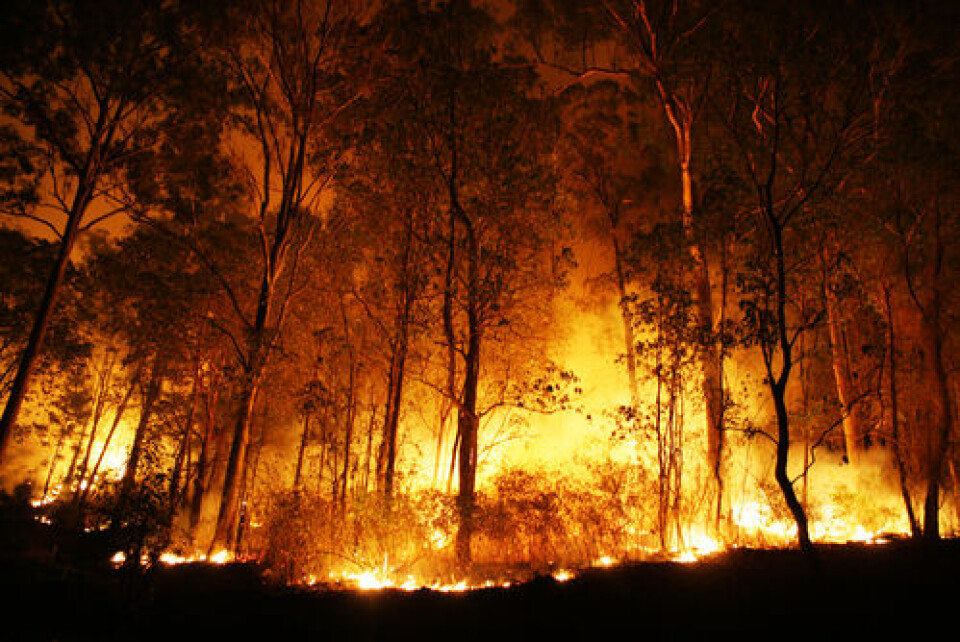-
Scam calls in France more than double in a year
Complaints about unsolicited calls are second only to those about fibre optic internet
-
‘Medical deserts’ major issue in upcoming local elections in France
Access to healthcare is now a more pressing concern than education, mayors say
-
‘Digital ID’ to be accepted at French airports this summer
Users of the France Identité app will be able to board certain flights using ID on smartphone
Could a Middle Ages law be reason for wildfire in southwest France?
Thousands of hectares of forest in Teste-de-Buch were destroyed in a huge blaze that has only just been contained

Could a law dating back to the Middle Ages have contributed to the wildfire that destroyed so much of the 'Forêt de la Teste-de-Buch', at the foot of the famous Grande Dune du Pilat, just south of Bordeaux?
Read more: France wildfires rage on: 20,000 hectares burnt, one arrest made
Read more: French wildfires: situation stabilising but evacuees cannot return
This forest is unique as it is the only 'forêt usagère' in France, meaning that the use of the forest for grazing, gathering firewood and even wood for construction was turned over to the inhabitants of the surrounding communes, leaving the owners of each plot with the right to harvest pine resin.
For the past 2,000 or so years the forest has been exploited for gathering pine resin.
But questions are now being asked about this status and its contribution to the fire that burned around 7,000 hectares of this precious forest.
The issues of the forêt usagère
Since 1468, people who had lived in the communes of Gujan-Mestras and La Teste-de-Buch and certain parts of Arcachon, have enjoyed free grazing rights, plus the right to ask for free green pine for house construction, and to gather free firewood throughout the wood.
The owners of the various plots retained the right to harvest pine resin.
The arrangement, never amicable, has regularly been challenged in the courts, to no avail.
In recent years there has been a tentative revival of interest in pine resin, but this is not a profitable activity.
For many years, the owners of the various plots making up the wood (the 'ayants-pins') have argued that without an income from the wood, there was no money to maintain it.
They say they were aware that dead wood and excessive undergrowth needed to be cleared, and had argued that this was a fire hazard.
Through the association Défense de la forêt française contre les incendies (DFCI), they proposed cleaning up the forest.
They complained they were blocked by the inhabitants of the communes who enjoyed the use of the forest (the 'non-ayants-pins') who have the right to gather dead wood for fires and request freshly cut wood, but are not allowed to cut wood themselves.
To defend their rights, they formed the Association de défense des droits d'usage et de la Forêt usagère' (ADDUFU).
When the clearing works started earlier this year, crews were physically prevented from entering the woods by ecological activists, despite local authorities declaring that the work should go ahead.
The arguments raged on but what now seems clear is that the fire fighters wasted many hours using chainsaws to cut paths through the woods in order to access the wildfire which destroyed it.
This delay possibly resulted in more damage being caused by the fire, but the question of whether better maintenance would have prevented the entire destruction of the wood is now redundant.
Patrick Davet, mayor of La Teste-de-Buch, told BFMTV that if the forest had been better maintained, the scale of the problem could have been lessened.
“The time will come for discussions, for”people to take responsibility,” he said
“I saw that fire start from my office window, it was just a simple column of white smoke.
“I’m furious. We’re going to have to set some rules.”
Related stories
GRAPHS: See how recent French wildfires compare to previous years
Wildfires to become daily reality in France by 2023, warns fire chief
Brittany wildfire started by local burning garden waste against rules
























